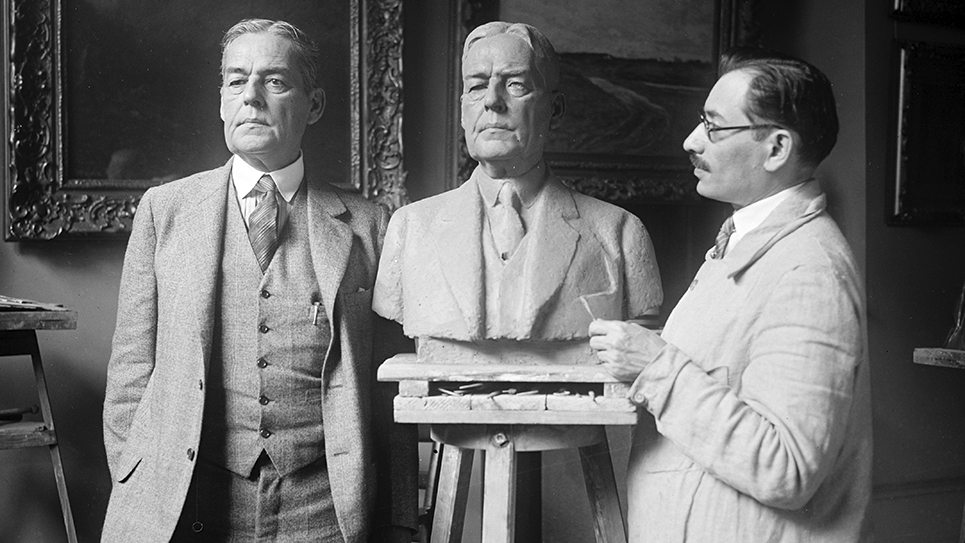Visiting those ol’ East Tennessee Jails
A Day Away By Mike Steely
Here in East Tennessee we are blessed or cursed to have so many old abandoned houses of correction. Yep, scary and historic old jails.
And you don’t have to go far to visit one of those old calabooses.
Brushy Mountain Prison may be the best known of the jails. It opened in 1896 in the aftermath of the Coal Creek War in 1891. This labor conflict was eventually resolved in favor of the coal miners with a bill passing the Tennessee legislature to replace the convict labor system with the Brushy Mountain Mine and Prison. The mountainous, secure site was located with the help of consulting geologists, and Brushy Mountain convicts built a railroad spur, worked the coal mines on site, operated coke ovens, or farmed. At the end of all the state’s convict lease arrangements on January 1, 1896, some 210 of those prisoners became the first inmates of Brushy Mountain.
In the 1980s Brushy Mountain Correctional Complex ended its long-standing function as a prison and assumed a mission as a classification facility. In its final days, it had a capacity of 584 and was used as the state’s reception/classification and diagnostic center for the region. It housed all custody levels of inmates, although it retained a maximum-security designation due to the 96-bed maximum security annex contained within the prison walls. These 96 beds were used to house the state’s most troublesome inmates. The last warden was Jim Worthington.
The prison closed on June 11, 2009. Its functions were transferred to the Morgan County Correctional Complex. In 2018, Brushy Mountain was re-opened to the public for tours, private events, car shows, and concerts. Brushy also houses a distillery that produces moonshine, vodka, whiskey and liqueurs.
If you plan to visit Brushy Mountain, you may want to also stop and visit Wartburg, the county seat of Morgan County, and nearby Frozen Head State Park.
You can find more information about the Brushy Mountain Prison online or call (423) 324-8687. The attraction is open at 10:30 a.m. and is located at 9182 TN-116, Petros, TN 37845.
Huntsville’s Scott County Jail is one of the oldest buildings in the county, and it is listed on the National Register of Historic Places. The jail was built in 1904, using large sandstone blocks from the local area with each block measuring 5x4x3 feet thick. The facility, which housed around 50 inmates, was in use for much of its century-long history before closing its doors to inmates in 2008. Today, History, Highways & Haunts LLC operates a historical museum inside of the jail, and tours include general history tours, flashlight tours, ghost hunts, and public and private paranormal tours.
The jail is open all week but closed on Wednesdays. You can get more information online at www.historicscottcojail.com or by calling (423)663-5353.
Greeneville may have the oldest jail in the state. The Olde Greene County Gaol was built in 1806 and, in 1835 the limestone blocks were moved to build the current and abandoned facility. It is located at 116 E Depot St. While in Greeneville you should certainly visit President Andrew Johnson’s grave, home, and museum that includes his original tailor shop.
For more information on the old jail, you can call (423)638-4111.
The historic Grainger County Jail isn’t open for daily touring but is notable. Located on Highway 92 just south of Highway 11W at Water Street in downtown Rutledge, the old jail was built in 1846, renovated in 1984 by the Grainger County Historical Society, and is on the National Register of Historic Places. While in Rutledge you may want to stop at one of President Andrew Johnson’s tailor shops, a small cabin next to the courthouse.
The jail could have become a brewery but the sale of the old building was rejected by the county a couple of years ago. You can find it on the internet or contact the Grainger County Historic Society at www.graingertnhistory.com.






